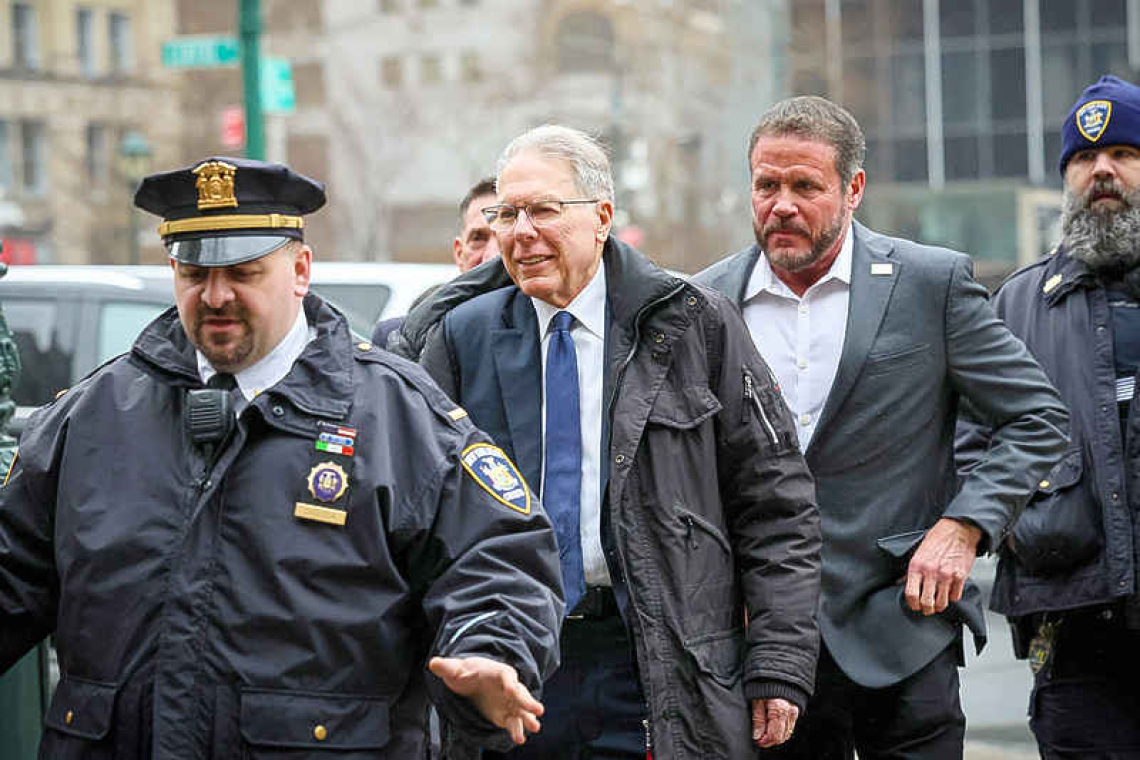NEW YORK--Wayne LaPierre, the longtime chief of the National Rifle Association, defended himself at a corruption trial on Monday, saying New York's attorney general should have given the gun rights group a pat on the back for implementing reforms.
Under questioning by NRA lawyer Sarah Rogers, LaPierre said the group underwent a "course correction" to improve accounting practices in 2018, two years before Attorney General Letitia James sued it for violating state law governing nonprofits. "I honestly felt the attorney general should be enthusiastic about the work we had done, been patting us on the back for the work we had done," said LaPierre, who resigned suddenly as NRA chief executive three days before the trial began on Jan. 8. James' office has said the NRA diverted millions of dollars to fund luxuries for top officials, including travel expenses for LaPierre, 74. It also said NRA officials failed to obtain board approval for conflicts of interest and insider transactions, arranging no-show contracts for associates and retaliating against whistleblowers who suspected wrongdoing. The lobbying group has denied wrongdoing, portraying itself as a victim of political overreach by James, and accusing the Democrat of violating the U.S. Constitution's First Amendment by trying to silence its speech. Justice Joel Cohen, the New York judge overseeing the trial, has said that narrative is unsupported. The trial comes at a difficult time for the 153-year-old group, which has seen revenue slide 44% since 2016 and membership drop by nearly one-third since 2018. LaPierre, who became the NRA's leader in 1991, had built it into a political powerhouse that pressed Washington and statehouses to expand gun rights, even as mass shootings mounted nationwide. Though he is a defendant, LaPierre is the star witness for James in her lawsuit. Under questioning by state Assistant Attorney General Jonathan Conley earlier on Monday, LaPierre said he authorized NRA payments for helicopters to transport him and other board members to NASCAR races to avoid getting stuck in traffic. He also acknowledged increases in monthly fees for an NRA contract with a company owned by Hollywood producer David McKenzie, at around the time LaPierre vacationed with him in California and on a yacht in the Bahamas in 2015 and 2016 - though he denied any connection. LaPierre later admitted to Rogers that he shirked his duty to tell the NRA board about his trips with McKenzie, and that he should not have authorized transportation for family and friends. "It was not the right thing to do," he said of sending a plane to pick up a family member stuck at the airport. Six jurors will decide how much LaPierre and two other individual defendants - NRA Secretary and General Counsel John Frazer and former finance chief Wilson Phillips - should reimburse the NRA for their alleged misconduct. Any sums could be reduced if the NRA were found at least somewhat to blame. A fourth defendant, former NRA second-in-command Joshua Powell, reached a $100,000 settlement this month, and admitted he improperly used NRA assets. Powell has been a critic of the NRA since his departure, and the group has accused James' office of going "easy" on him.







